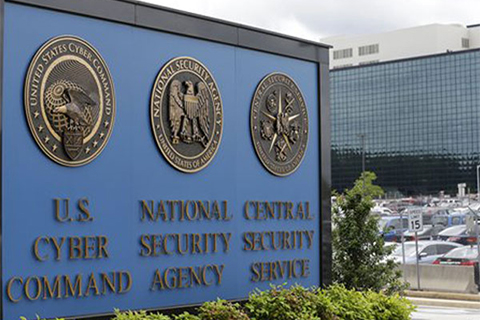Earlier this year, details of top-secret surveillance programs run by the American and British governments were leaked to newspapers. Under these programs, government security agencies gather metadata about millions of private telephone calls, emails and text messages. Scott Anderson spoke recently with Ron Deibert, a professor of political science at U of T and director of the Citizen Lab, whose book Black Code (2013) addresses this issue, among others.
After 9-11, the Patriot Act expanded the American government’s ability to monitor its citizens. What’s new about recent revelations?
The broad contours were already known to some people, but we didn’t have the level of detail that we do now. We now know the code names of the programs, and we know specifically which companies are handing over data to the government.
If you’re an American citizen, what is the most worrisome aspect of this?
The apparent wholesale collection of domestic communications data in violation of the constitution – an activity that has been approved by all three branches of government and is overseen by a court whose deliberations themselves are secret.
Is there anything the average citizen can do about this?
They can use the legal process and try to influence lawmakers. Groups such as the Electronic Frontier Foundation and the American Civil Liberties Union have launched legal proceedings against the U.S. government.
Do Canadians have reason to be concerned about this activity?
Yes, very much so – and for a variety of reasons. First, because of how global communications are structured, most of our Internet traffic is routed through the United States. Therefore, our email, web browsing, text messaging and even some phone calls are all quite open to American interception. Secondly, the restrictions on the National Security Agency (NSA) don’t apply to foreigners, and Canadians fall into that basket. Given what the NSA is able to do in the U.S. with existing restrictions, this should be of concern to us. Lastly, we have a counterpart organization called the Communications Security Establishment of Canada (CSEC) that works very closely with the NSA and operates in this country with even less oversight.
What do we know about the Canadian government’s monitoring activities and how it is co-operating with the NSA?
That’s a good question that Canadians need to ask their government. CSEC has a very large budget. It’s building an $800-million complex outside of Ottawa. It’s been around for decades and has just one retired judge overseeing it. It issues an annual review and in all the years that the oversight body has been doing its job, it has only once found a problem, this year. But it is not accountable to Parliament; it answers to the minister of defence and ultimately to the prime minister.
What’s your response to people who say “I don’t have anything to hide so why should I be concerned?”
This misses the real problem. A government agency with the power to intercept and monitor all of our communications – when so much of how we communicate involves broadcasting data about ourselves – is a real threat in a liberal democratic society.
Is diminished privacy in exchange for improved security something we should accept?
It’s a compromise I’m willing to make. We need security agencies to protect us and to protect our right to communicate in the first place. Without them, these rights would evaporate because there are nasty organizations and autocratic regimes that would prefer a world in which these rights didn’t exist. But we don’t want security agencies to be able to vacuum up data without constraints because this could lead to an abuse of power. When we talk about security, we can’t lose sight of what we’re securing in the first place, which is a liberal democratic society.
View an excerpt from Ron Deibert’s Black Code
Excerpted from Black Code: Inside the Battle for Cyberspace. Copyright © 2013 Ronald Deibert. Published by Signal, a division of Random House of Canada Limited. Reproduced by arrangement with the Publisher. All rights reserved.
Recent Posts
U of T’s 197th Birthday Quiz
Test your knowledge of all things U of T in honour of the university’s 197th anniversary on March 15!
Are Cold Plunges Good for You?
Research suggests they are, in three ways
Work Has Changed. So Have the Qualities of Good Leadership
Rapid shifts in everything from technology to employee expectations are pressuring leaders to constantly adapt






